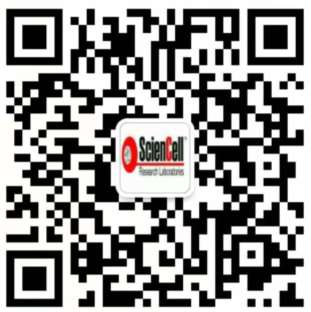{{item}}
Vascular endothelial cells contribute to the maintenance of vascular homeostasis. Vascular endothelial cells produce and secrete activators and inhibitors of the coagulation and fibrinolysis system. In addition, they mediate the adhesion and aggregation of blood platelets. Endothelial cells also release molecules that regulate cell proliferation and control vessel wall tone. Human umbilical vein endothelial cells (HUVEC) are the most commonly used cell type for the study of endothelial cell processes in vitro. HUVEC have a “cobblestone” morphology, show positive staining for vWF/Factor VIII and CD-31, and the ability to take up acetylated low-density lipoprotein. Cells pretreated with IL-1 or TNF-alpha also selectively express E-selectin and VCAM.
HUVEC from ScienCell Research Laboratories are isolated from human umbilical veins. HUVEC are cryopreserved at passage one and delivered frozen. Each vial contains >5 x 105 cells in 1 ml volume. HUVEC are characterized by immunofluorescence with antibodies specific to vWF/Factor VIII and/or CD31 (PECAM1). HUVEC are negative for HIV-1, HBV, HCV, mycoplasma, bacteria, yeast and fungi. HUVEC are guaranteed to further expand for 15 population doublings under the conditions provided by ScienCell Research Laboratories.
Recommended Medium
It is recommended to use endothelial cell medium (ECM, Cat. #1001) for the culturing of HUVEC in vitro.
| 货号 | 8000 |
| 产地 | 北美 |
| 缩写 | HUVEC |
| 规格 | 5 x 10^5 cells/vial |
| 用途 | 科研 |
| 储存 | 液氮 |
| 运输 | 干冰 |
脐带细胞系统























